
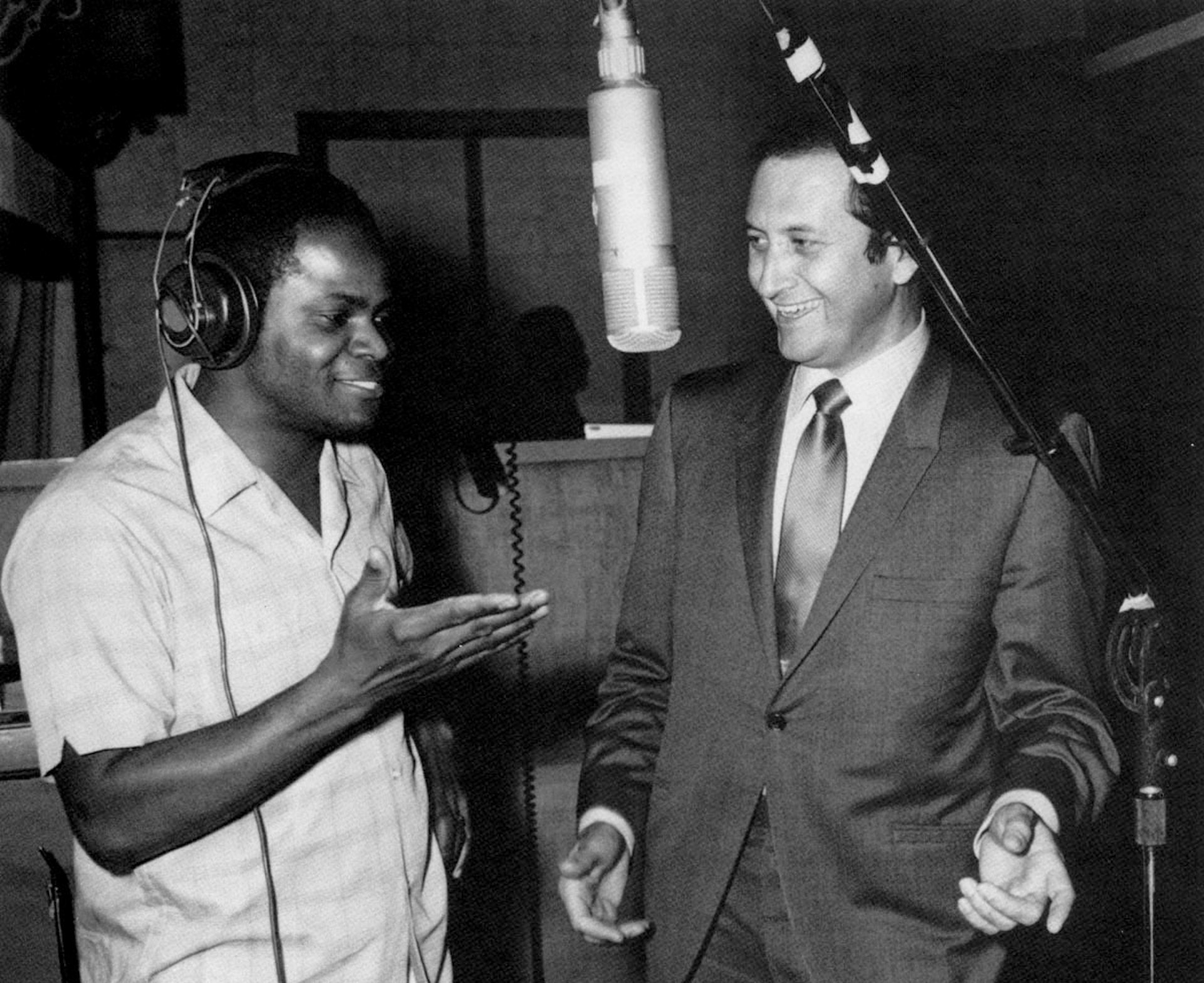

Chapter 6
Reconsider Me
The Country Connection
Headphones on, Joe Tex listens in a Nashville studio with producer and song publisher Buddy Killen, mid-1960s.
Beginning in the 1920s, many record companies divided their blues and country recordings into separate “race” and “hillbilly” series. In reality these musical styles shared many themes and instruments, and blues and country musicians historically learned much from one another’s styles and songs. Such musical exchange between Black and white artists carried through to the stages and studios of postwar Nashville. As put by Nashville native Bobby Hebb, who graced the stages of both the Bijou Theater and the Grand Ole Opry, “It was very important that one understood more than one culture of music.”
RACE AND HILLBILLY
This Decca Race Records catalog (below) dates from 1938, and its Hill Billy counterpart (left) is from 1940. Well into the 1950s, the term “race music” was routinely used as an industry catchall for recordings by Black artists.
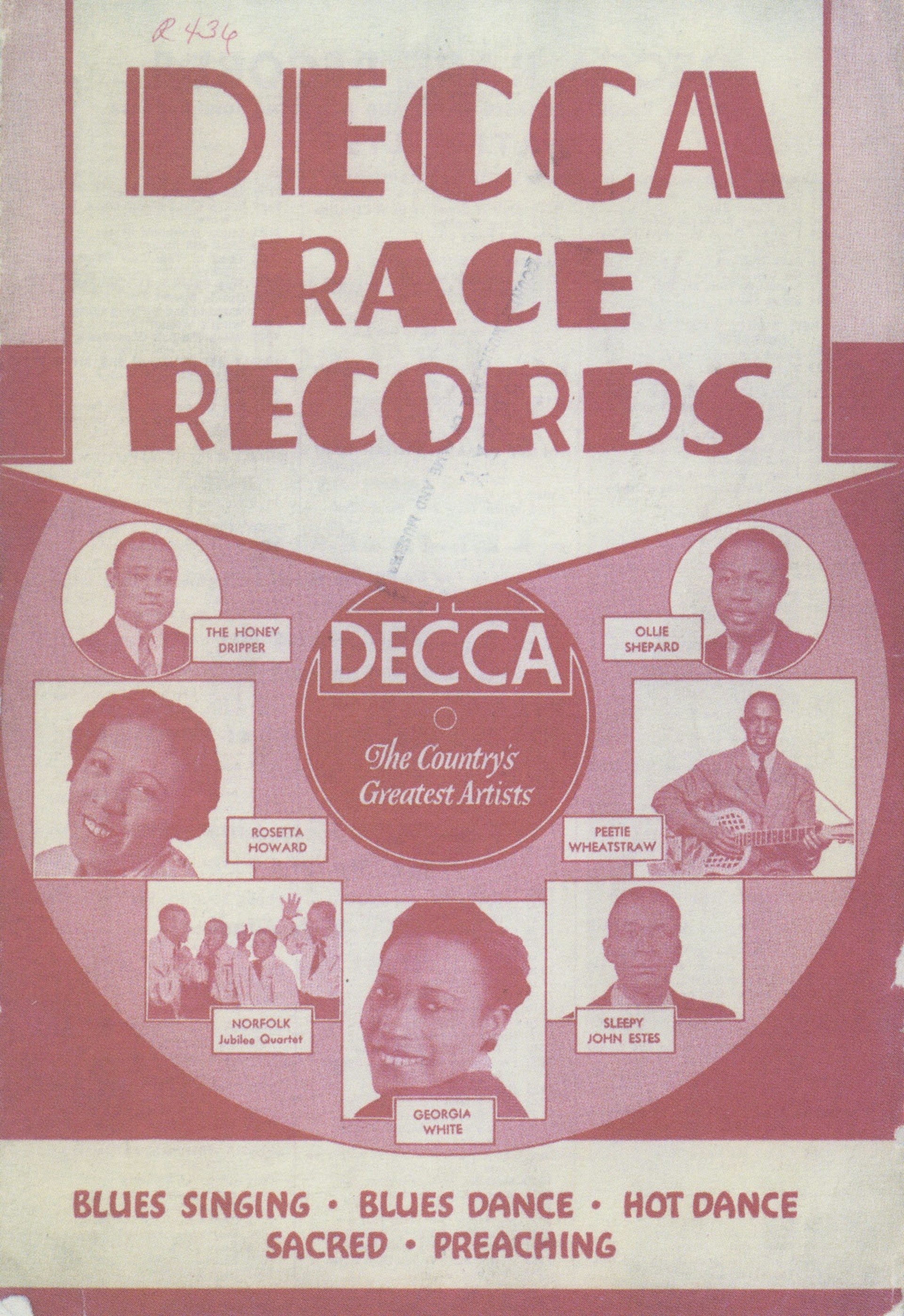
“GREATEST RACE STAR”
In 1946, Cecil Gant recorded “Nashville Jumps” (right) for the city’s Bullet Records. His success earned him the cover feature in this 1947 Bullet newsletter (below), which also detailed the company’s country and pop triumphs.
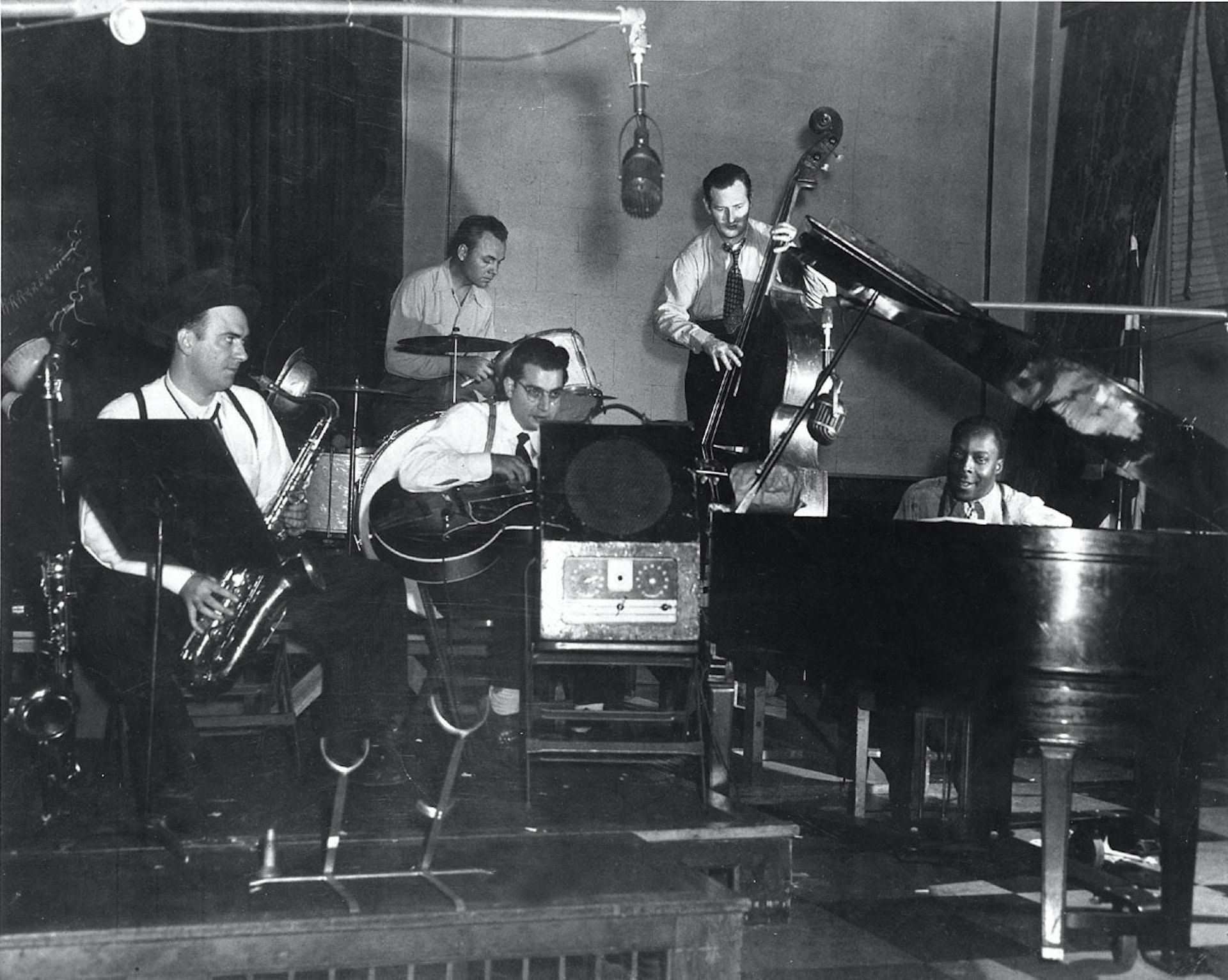
Cecil Gant, at piano, recording with a crew of Nashville musicians in the WSM studio. From left: Charley Grant, Farris Coursey, Jack Charamella, Ted Swinney, and Gant, c. late 1940s.
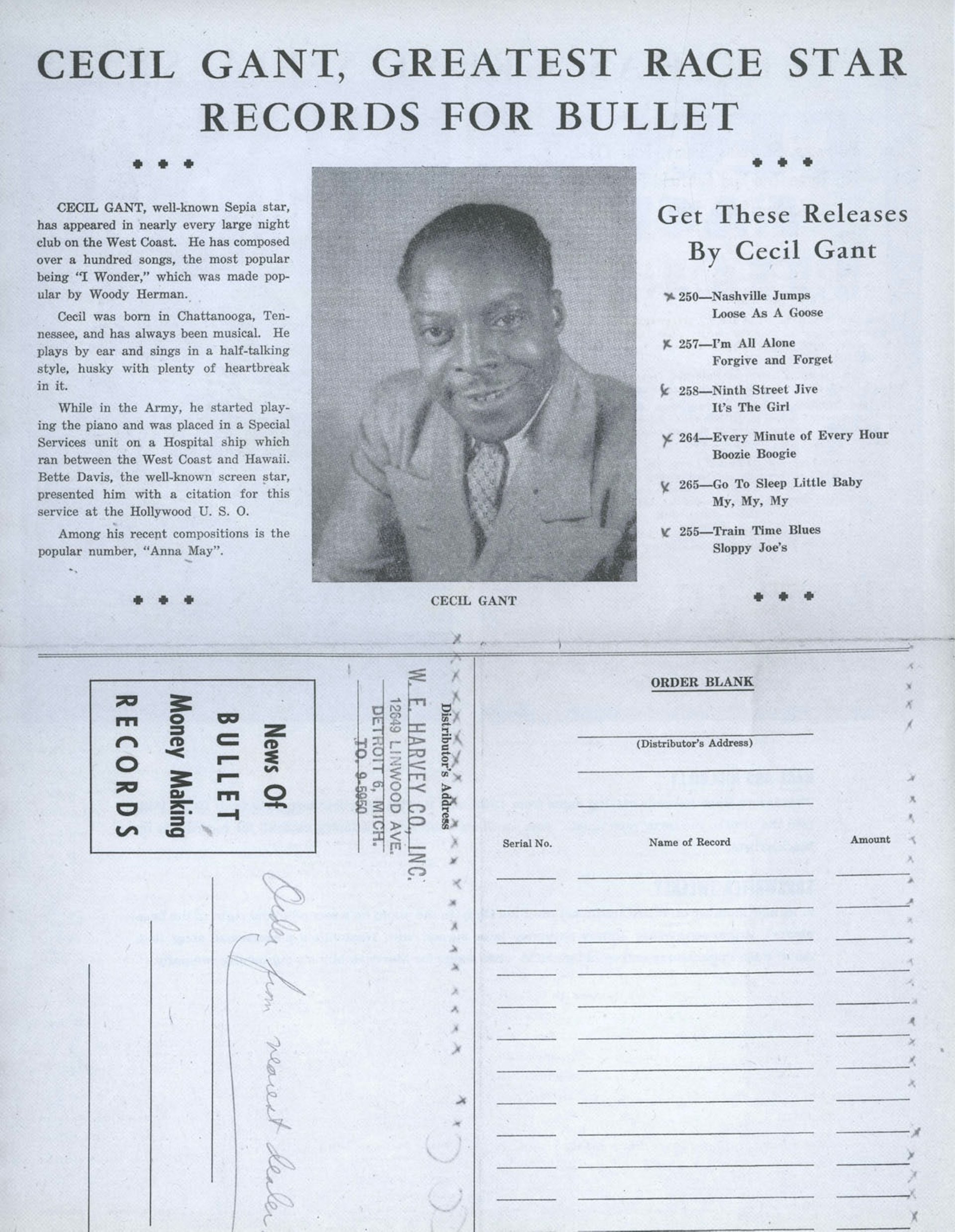
Cecil Gant’s success earned him the cover feature in this 1947 Bullet newsletter, which also detailed the company’s country and pop triumphs.
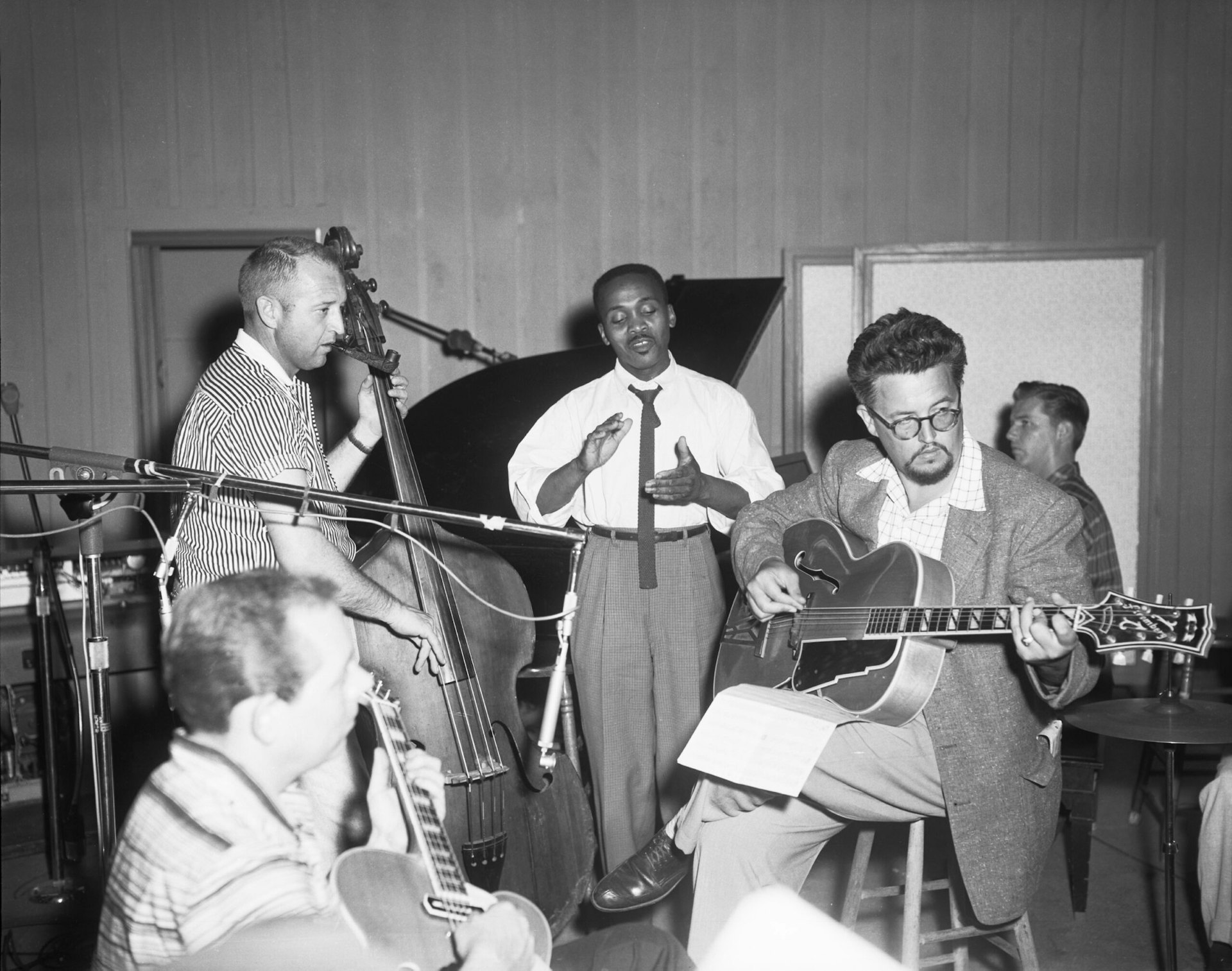
Jimmy Sweeney stands center among several of Music City's recording session elite: (from left) guitarist Hank Garland, bassist Floyd "Lightnin'" Chance, songwriter Boudleaux Bryant, and pianist Floyd Cramer, c. 1958. Photograph by Elmer Williams.
SONGWRITER SWEENEY
A former member of the WLAC radio act the Five Bars, singer-songwriter Jimmy Sweeney later signed with Nashville’s powerhouse song firm Acuff-Rose Publications, and would go on to write songs for Marty Robbins’s publishing company.
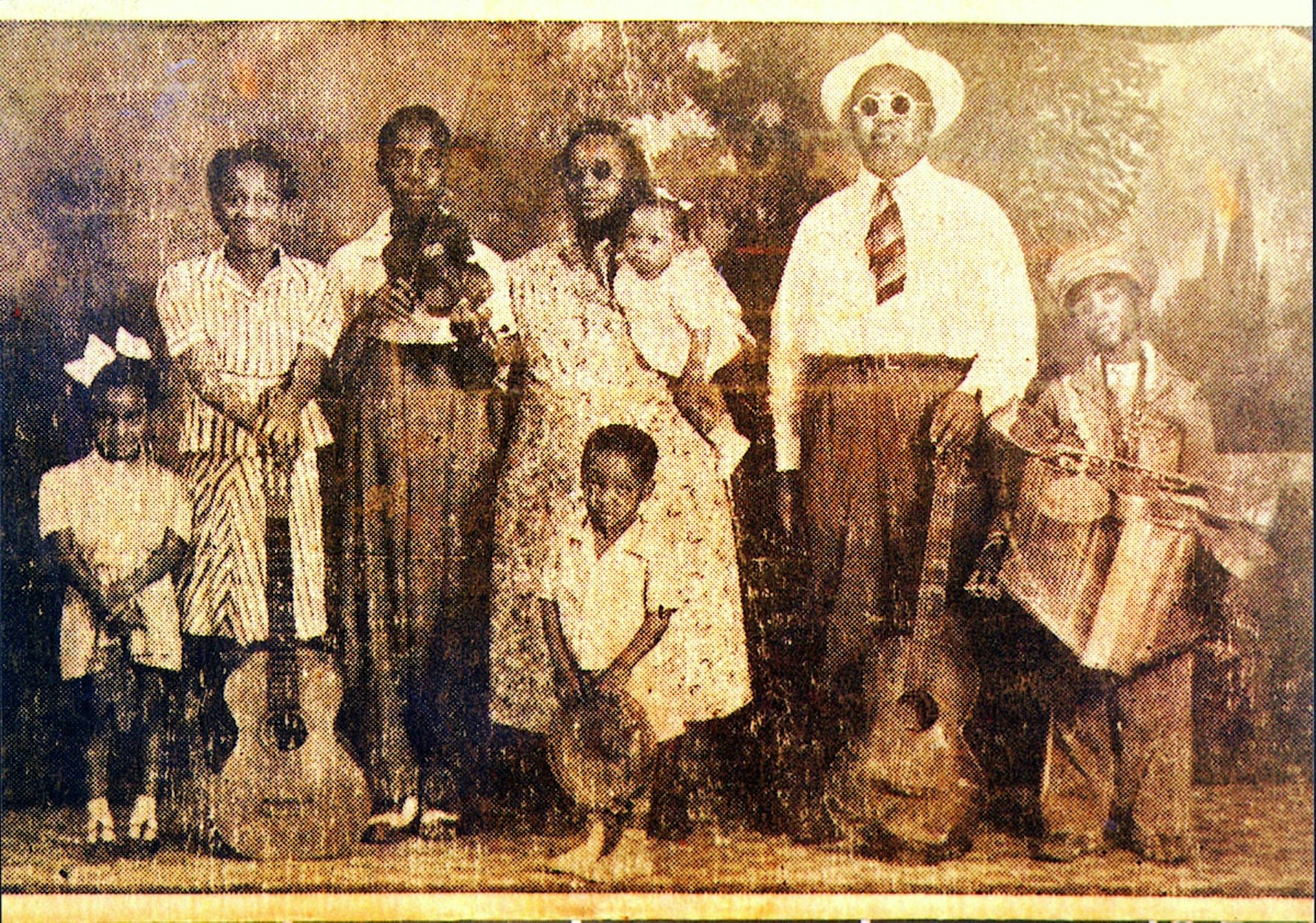
HEBB’S KITCHEN CABINET ORCHESTRA
Seen in this 1942 photo, Hebb’s Kitchen Cabinet Orchestra, as the Hebb family called themselves, included (from left) Ednaearle, Helen, William Melvoid, Ovalla (holding Shirley Ann), William Marion, Harold, and (in front) Bobby Hebb. Bobby joined Roy Acuff’s Grand Ole Opry troupe at age twelve, and later wrote and recorded the million-seller “Sunny” (right), which earned him a spot on the Beatles’ 1966 tour. Courtesy of Helen Hebb.
Courtesy of Mike Smyth.
Courtesy of Mike Smyth.
Bobby Hebb at the Opry
A Grand Ole Opry radio engineer kneels to capture the sound of young Bobby Hebb tap-dancing with the Smoky Mountain Boys (from left: Robert Lunn, Jimmie Riddle, Howdy Forrester, probably Jess Easterday, Lonnie Wilson) and Roy Acuff, leaning in from the right, early 1950s. Photo by Gordon Gillingham. Courtesy of the Grand Ole Opry Archives.
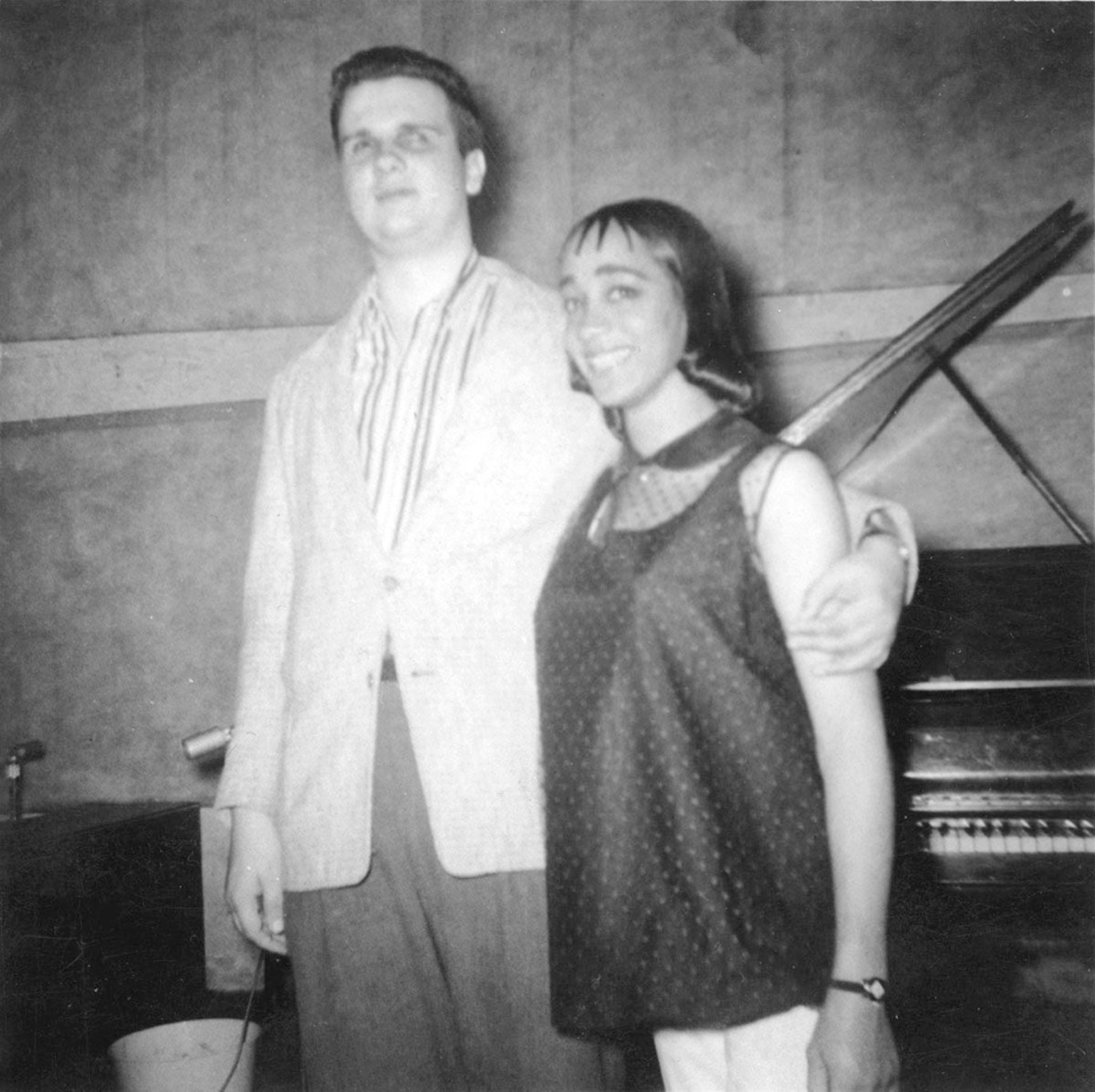
“LET’S TRADE A LITTLE”
In 1954, high school student Audrey Bryant made Nashville TV history when she joined the cast of an otherwise all-white, teen music program hosted by local disc jockey Noel Ball. Five years later, Bryant recorded “Let’s Trade a Little” with renowned session pianist Hargus “Pig” Robbins (with her in the above photo) and other Music City veterans. Courtesy of Audrey Bryant Watkins.
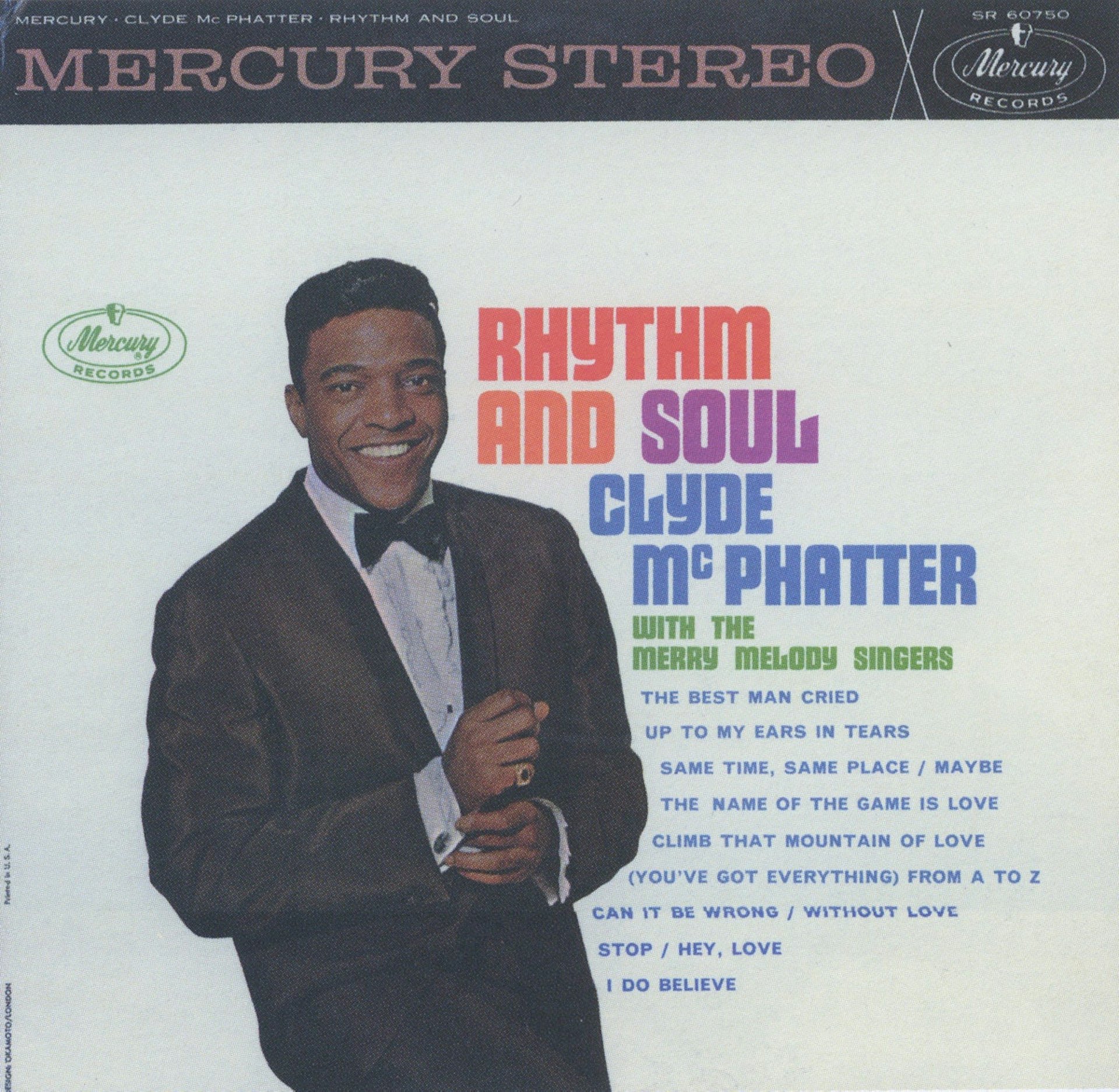
SOUL COUNTRY
In the 1960s, country producer Shelby Singleton brought R&B stars Clyde McPhatter and Ruth Brown to Nashville to record on Music Row, while Nashville publisher Buddy Killen signed Joe Tex to songwriting and record deals. “The feel in the studio was, in Nashville, really, really warm,” recalled Brown.
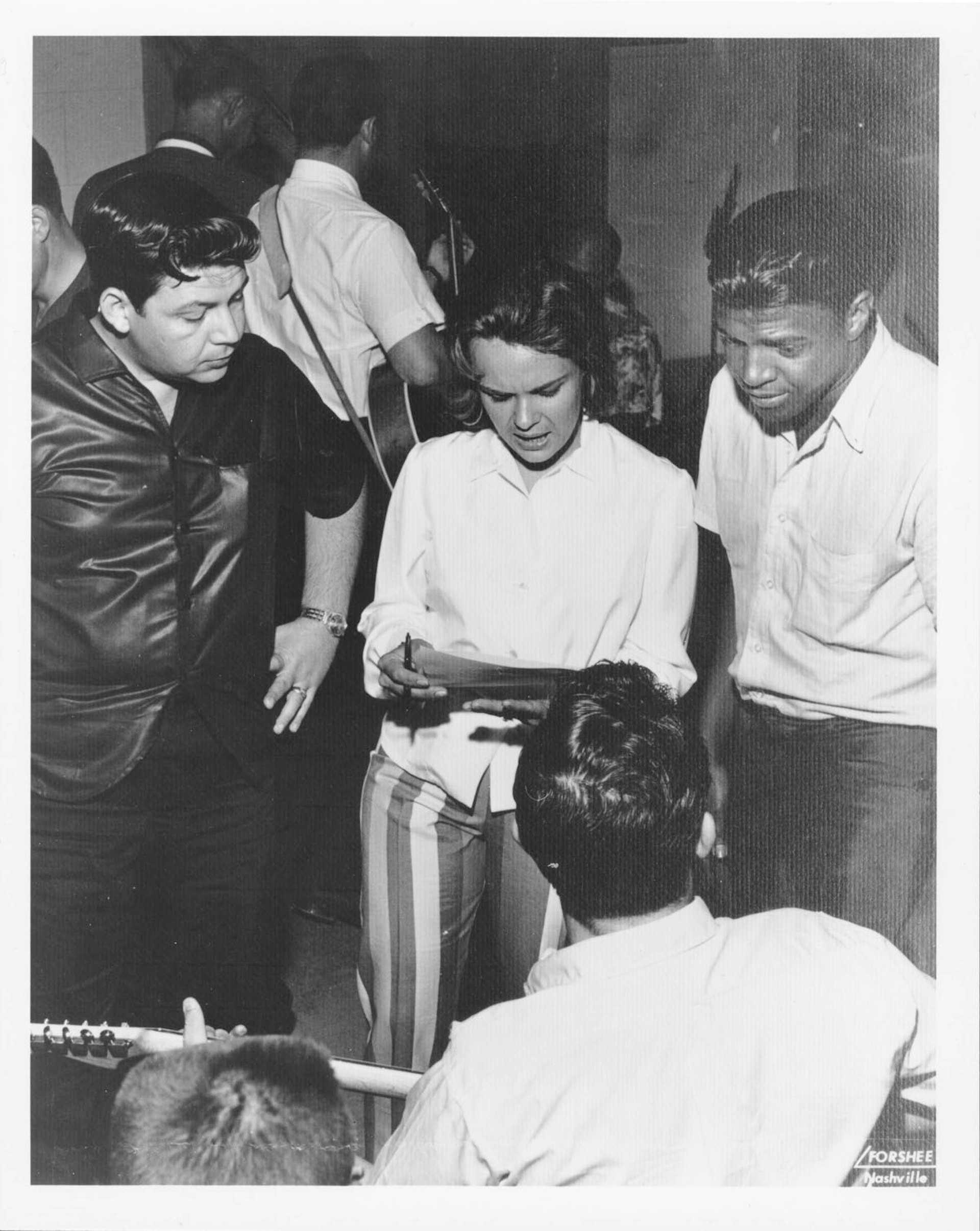
Clyde McPhatter (right) concentrates in a Nashville recording studio with producer Shelby Singleton and backup singer Margie Singleton, c. 1962. Guitarist Jerry Kennedy sits in the foreground. Courtesy of Sun Entertainment Corporation.
R&B/Country Connection
Compare and contrast country and R&B versions of the same songs. All of these recordings were made in Nashville.
Ted Jarrett: Love, Love, Love
Songwriter: Ted Jarrett
Label: Excello 2069
Year: 1955
———————————————————————————————-
WEBB PIERCE: LOVE, LOVE, LOVE
Songwriter: Ted Jarrett
Label: Decca 9-29962
Year: 1955
———————————————————————————————-
JOHNNY ADAMS: RECONSIDER ME
Songwriters: Mira A. Smith and Margaret Lewis
Label: SSS International 770
Year: 1969
———————————————————————————————-
Margaret Lewis: Reconsider Me
Songwriters: Mira A. Smith and Margaret Lewis
Label: Ram 8042
Year: 1980
———————————————————————————————-
ESTHER PHILLIPS: RELEASE ME
Songwriters: Eddie Miller, Dub Williams, and Robert Yount
Label: Lenox 5555
Year: 1962
———————————————————————————————-
Kitty Wells: Release Me
Songwriters: Eddie Miller, Dub Williams, and Robert Yount
Label: Decca 9-29023
Year: 1954
———————————————————————————————-
Jimmy Bell [Jimmy Sweeney]:
She Wears My Ring
Songwriters: Boudleaux Bryant and Felice Bryant
Label: Hickory 1136
Year: 1960
———————————————————————————————-
Ray Price: She Wears My Ring
Songwriters: Boudleaux Bryant and Felice Bryant
Label: Columbia 4-44628
Year: 1968
———————————————————————————————-
FREDDIE NORTH: SHE’S ALL I GOT
Songwriters: Jerry “Swamp Dogg” Williams Jr., and Gary Bonds
Label: Epic 12004
Year: 1971
———————————————————————————————-
JOHNNY PAYCHECK: SHE’S ALL I GOT
Songwriters: Jerry “Swamp Dogg” Williams Jr., and Gary Bonds
Label: Epic 5-10783
Year: 1971
———————————————————————————————-
Joe Henderson: Snap Your Fingers
Songwriters: Grady Martin and Alex Zanetis
Label: Todd 1072
Year: 1962
———————————————————————————————-
Dick Curless: Snap Your Fingers
Songwriters: Grady Martin and Alex Zanetis
Label: Capitol 3182
Year: 1971
———————————————————————————————-
Joe Simon: The Chokin’ Kind
Songwriter: Harlan Howard
Label: Sound Stage 7 2628
Year: 1969
———————————————————————————————-
Waylon Jennings: The Chokin’ Kind
Songwriter: Harlan Howard
Label: RCA-Victor 47-9259
Year: 1967
———————————————————————————————-

